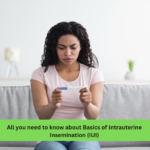Boosting Hemoglobin Levels During Pregnancy: Causes, Risks, and Solutions
Monitoring hemoglobin levels is crucial for ensuring a healthy pregnancy, as these levels play a vital role in both the well-being of the unborn child and the mother’s health. Adequate hemoglobin is essential to provide the necessary energy during pregnancy. Any significant drop in hemoglobin levels can lead to various issues. This article addresses the causes of low hemoglobin levels during pregnancy, associated risks, and practical approaches to increase levels for a safe and successful pregnancy.

1. Increased Blood Volume and Dilution: The body produces extra blood to supply oxygen to the developing fetus, leading to a potential dilution of hemoglobin concentration due to increased blood volume. While a reduction of up to 10% is considered normal, more substantial drops might result in anemia.
2. Inadequate Iron Intake: Iron is a crucial component in hemoglobin formation. Insufficient iron intake from the diet can hinder hemoglobin production, particularly since the demand for iron is heightened during pregnancy.
Risks Associated with Low Hemoglobin Levels:
Low hemoglobin levels during pregnancy can lead to weariness, weakness, and even lightheadedness due to insufficient oxygen supply to the body’s tissues. Everyday tasks may become challenging, affecting overall quality of life. Moreover, anemia increases the risk of preterm delivery and low birth weight in infants, which can result in various health and developmental complications.
Impaired Fetal Development: Inadequate oxygen supply to the fetus can hinder healthy growth and development, potentially leading to cognitive delays, learning difficulties, and long-term health issues.
Effective Strategies to Boost Hemoglobin Levels:
1. Iron-Rich Diet: Incorporate iron-rich foods like lean meats, beans, and lentils into your diet to enhance iron intake. Consuming vitamin C-rich foods like bell peppers can enhance iron absorption, contributing to improved hemoglobin levels.
2. Prenatal Vitamins: Consult your doctor about taking prenatal supplements containing iron and vitamin B12. These supplements support healthy hemoglobin levels and address any nutritional deficiencies.
3. Hydration and Relaxation: Adequate hydration supports optimal blood volume and circulation, ensuring effective oxygen delivery. Prioritize sleep to aid in rejuvenation and the body’s healing process.
4. Regular Checkups: Attend scheduled prenatal appointments to enable timely monitoring of hemoglobin levels through regular blood tests. This allows medical professionals to take necessary actions if levels show significant decline.
In Conclusion: Expectant mothers should closely monitor hemoglobin levels to ensure a safe pregnancy for themselves and their unborn children. Understanding the factors contributing to low hemoglobin levels and their implications underscores the importance of prevention. Optimal hemoglobin levels can be maintained through proper prenatal care, a balanced diet rich in iron and essential minerals, and sufficient rest. By prioritizing their health and following healthcare practitioner advice, mothers can mitigate the risks associated with low hemoglobin levels and enjoy a safe and joyful pregnancy.





No Comments